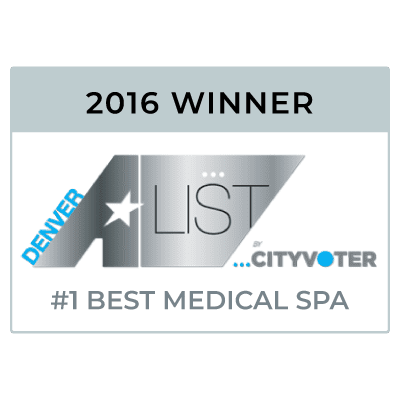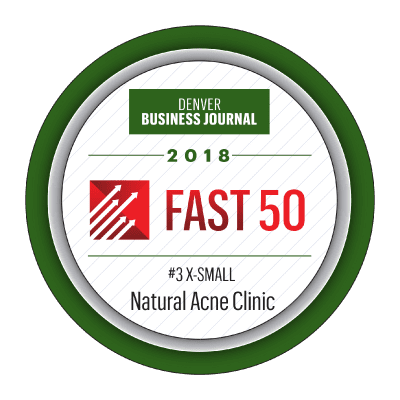Everyone has had acne in their life. You may have dealt with it in the past or are dealing with it (hopefully successfully) at the moment. No matter what stage you are in, an inevitably important part of keeping acne away is understanding the human skin.
Learning what causes acne is the first step, but making sure your skin heals and acne stays away is another matter altogether. By having a deeper understanding of our skin, we can comprehend how acne builds up, identify the first signs, and determine factors that can aggravate acne.
Read more as we discuss how to take care of your skin and debunk common myths about acne.
Do you know YOUR primary acne cause? Still struggling with an unsure self-diagnosis?
We created a short quiz to help you Discover YOUR Acne Causes
The Functions of Human Skin
The human skin is part of the integumentary system, along with the nails and exocrine glands. Although it is only a few millimeters thick, the skin truly is the largest organ of the body.
While the skin’s integral role is to protect the entire human body, it inevitably experiences exposure to harmful substances from the environment that can cause diseases.
It Protects The Body
Being exposed to the environment, our skin protects our body from toxic substances and germs. It serves as the barrier that protects us from rain, cold, and extreme heat. It also defends the body against physical frictions or pressures, radiation, and chemicals.
It Regulates Body Temperature
Aside from providing protection, the skin helps regulate body temperature, maintain the balance of fluids, and control moisture loss through sweat and hair.
It Detects Changes In The Environment
The skin helps detect changes in the environment since it acts as a receptor for heat, cold, touch, and pain. It works to neutralize any aggressors and prevents them from entering the body. A good example is how we shiver when the temperature drops.
Damage to the expansive network of nerves within our skin, called neuropathy, increases the risk of severe wounds or the worsening of an existing wound because of the loss of the sensation of pain when injured.
Understanding Skin Color
Learning about human skin also involves a basic understanding of our skin color. While genetic inheritance may significantly determine our skin color, it can still alter depending on our exposure to sunlight.
Our skin comes in a wide variety of colors, classified into six types or commonly known as the Fitzpatrick Skin Type.
| Skin Type | Common Features | Sunburn & Tanning Behavior |
| I | Extremely fair skin | Always burns, never tans |
| II | Fair skin | Always burns, sometimes tans |
| III | Medium Skin | Sometimes burns, always tans |
| IV | Olive skin | Rarely burns, always tans |
| V | Moderately pigmented brown skin | Never burns, always tans |
| VI | Markedly pigmented dark skin | Never burns, always tans |
Although there are six different types of skin colors, both light and dark complexions have melanin.
Melanin
Melanin is a pigment found in our skin cells. It determines our skin and hair color and is present in varying degrees.
It’s not only found in the skin, though. Several areas of our body also contain melanin, such as our hair, the pupils or irises of our eyes, the inner ear, and even parts of our adrenal glands.
Melanin protects the skin from the damaging effects of UV radiation caused by sun exposure. This is the reason the skin’s melanin levels increase when it gets exposed to the sun for extended periods of time.
While melanin protects us from harsh UV rays, it can’t entirely protect us from several other skin conditions.

Acne: The Most Common Skin Condition
From minor allergies to deadly diseases, it is essential we keep an eye out for any changes in our skin as this will typically show its current health condition. One of the most common conditions affecting the skin is acne, which touches approximately 50 million Americans annually. It can appear on our face, neck, shoulders, chest, and even our back.
It’s a common source of anxiety from teens to adults, often triggered by hormonal changes and caused by blocked hair follicles and oil glands of the skin.
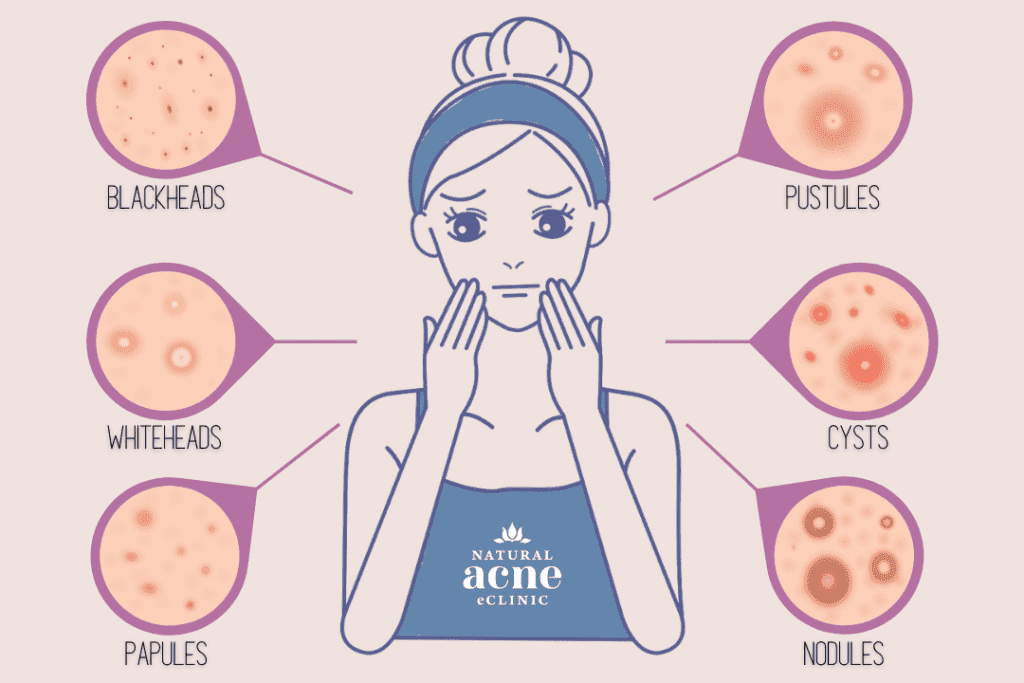
Signs of Acne
The term acne not only refers to pimples on the face it can also manifest in varying forms, including blackheads, whiteheads, cysts, and nodules. Depending on the severity of acne, you’ll notice some of these signs in your face or body.
Whiteheads
Whiteheads are the first sign of acne. It appears when excess oil and dead skin cells build up, clogging the pores. Whiteheads typically look like raised, flesh-colored or white bumps on the skin.
It’s not advisable to pick on whiteheads as they may lead to more whiteheads or develop into acne scars.
Blackheads
Blackheads appear on our skin as tiny black dots or may appear to be minor bumps on the skin. Although some may assume whiteheads appear as the first signs of acne, blackheads, and whiteheads can appear at the same time.
The dark-colored appearance of blackheads is not dirt. Rather, it’s the color sebum takes after being exposed to oxygen. As opposed to whiteheads that appear as slight bumps underneath the skin, blackheads stretch right at the opening of a pore.
Pimples
A pimple occurs when the oil glands become clogged resulting in swollen red lesions with pus. It appears to be a small pustule or papule. Pimples can appear on our face, back, neck, and chest area. Despite appearing swollen, pimples are not painful to the touch.
Cysts
Cysts are fluid-filled sacs that feel like hard lumps underneath the skin. Cystic acne is the largest form of acne and is more common in males than females.
Nodules
Experts consider nodular acne as a severe form of acne. Compared to other forms, nodular acne appears as a small to medium bump under the skin. It can turn red as the surrounding skin gets more inflamed. And unlike pimples, nodular acne doesn’t have a “head”, and are very painful to the touch. This is the most common form of acne and is typically referred to as “hormonal” acne.

What Causes Acne?
With acne, we can’t place the cause down into just one culprit. For example, it is not only hormones that are the cause. There are many factors that trigger acne. To give you the answer to this question, we have made an in-depth post that covers everything you need to know. Check it out here.
Risk Factors
Acne doesn’t build up overnight. It actually takes up to 90 days for acne to form under the skin before it comes to the surface! There are many factors that can contribute to acne, and some of them could be habits we weren’t aware were already triggering acne. More often than not, we disregard some of these unhealthy habits, causing the build up of acne.
Hormonal Changes
Hormonal changes are fluctuations that can happen at any time in one’s life- not just puberty. . It may be a point of confusion, though, it isn’t the hormones itself that causes acne, but the imbalance of it within the body that is the contributing factor.
Friction
Repetitive friction or rubbing will irritate the skin. The stress on the skin can develop into a rash or acne. You could be unknowingly doing this without a second thought. Wearing a tight collar, being constantly on the phone, or even vigorously rubbing your face with a towel already constitutes harmful rubbing. Even the friction from backpack straps and sports gear such as shoulder pads can irritate our shoulders, which can eventually lead to acne.
Stress
A big misconception about stress is that it can directly cause acne. Despite this being false, the relationship between stress and acne is very close. Under stress, acne can prolong its stay on the skin and make the healing process slow down. By making pimples stay longer, the skin becomes susceptible to increased severity. This can lead to having more acne appearing at one time as it takes longer for each of them to heal.
Learn How Stress Affects Acne: Signs And Solutions
Family History
Some forms of acne can run in the family. Although there’s no specific gene that connects to acne, experts have found they play a role. Propionibacterium acnes is bacteria that promotes acne, and our genetics can play a vital function in determining how effective our immune system can ward it off.
Medications
Several medications may aggravate or cause acne. These could include contraceptives, androgens lithium and thyroid medications. While some medications may not have the same effect on others, it’s best to check with your dermatologist on what effect it may have on you.
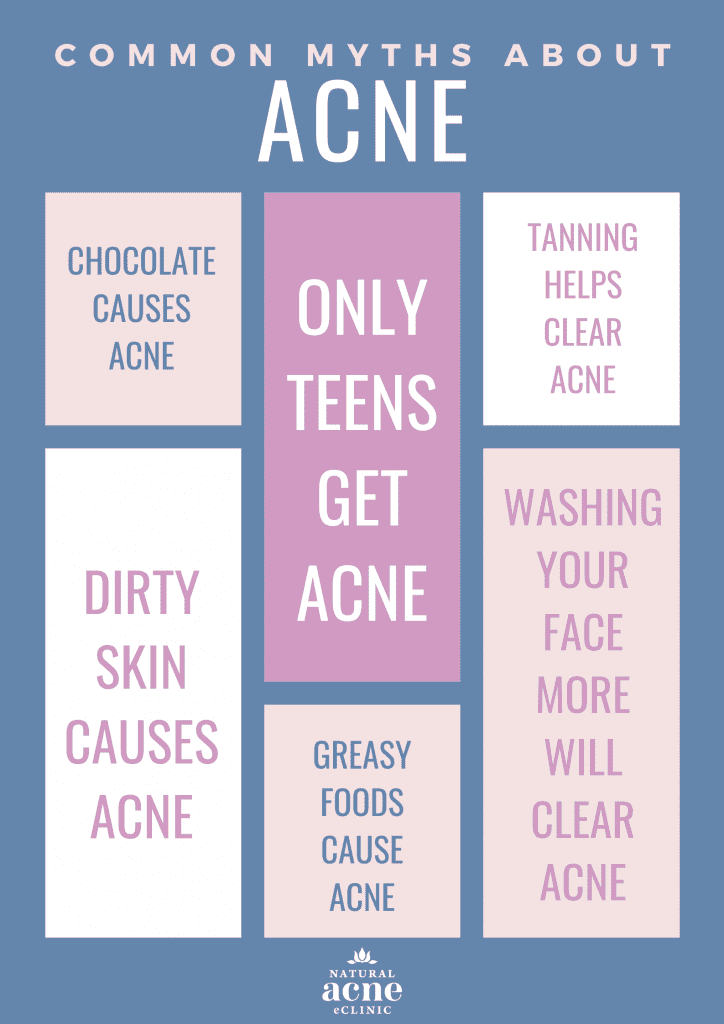
Common Myths About Acne
We all have common myths about acne. While some are unfounded, others will have a bit of truth to them. To clear things up for you, we’ve listed the most common myths about acne from around the world.
Only Teenagers Get Acne
For some, looking back through their teenage years brings back nostalgic memories. But there are others who relive painful recollections of tough times suffering from acne.
As we mentioned earlier, acne can come from an imbalance in our hormones. We can get acne in different stages of our life, be it during a spike in our hormones as teenagers, or as adults experiencing hormonal imbalances or other acne triggers. This is why understanding the human skin is essential, not just for beauty, but for our health, too.
Eating Chocolates Causes Acne
This is one of the most common myths about acne and its relationship to food. Chocolate has little to no effect on our skin. You need not swear off such indulgence since decades of research have shown little proof that chocolate directly causes acne. (NOTE: cow’s milk dairy in chocolate can be acne triggering)
Greasy Foods Cause Acne
Similar to other food myths, greasy foods don’t cause acne. However, being in a greasy environment will definitely affect the skin. So working in fast food kitchens can be harmful to the skin as the oil particles can clog up the pores. Touching your face after handling greasy foods is a definite no-no.
Stress Causes Acne
As we have discussed under risk factors, stress doesn’t cause acne directly. But factors that relate to stress will help build the perfect environment for acne.
Tanning Helps Clear Acne
Tanning will only temporarily cover the redness of acne, which is why others believe it helps cure acne. However, tanning, whether in the sun or in booths, will cause dry, irritated skin.
The More You Wash Your Face, The Fewer Breakouts You’ll Have
This is one of the common myths that can wreak havoc on your skin. A hard and fast rule is to wash your face twice a day- once in the morning and once in the evening. Washing your face more than twice will lead to dry, irritated skin. This might lead to your skin overcompensating and producing too much oil, and too much sebum on the skin can clog the pores, leading to acne.
Hygiene
Acne occurs beneath our skin and not on the surface. Thus, dirty skin does not cause acne. However poor hygiene and lack of acne product usage can contribute to the development of acne. For this reason, it’s not only recommended, but a must, to change your sheets, covers, and pillowcases regularly.
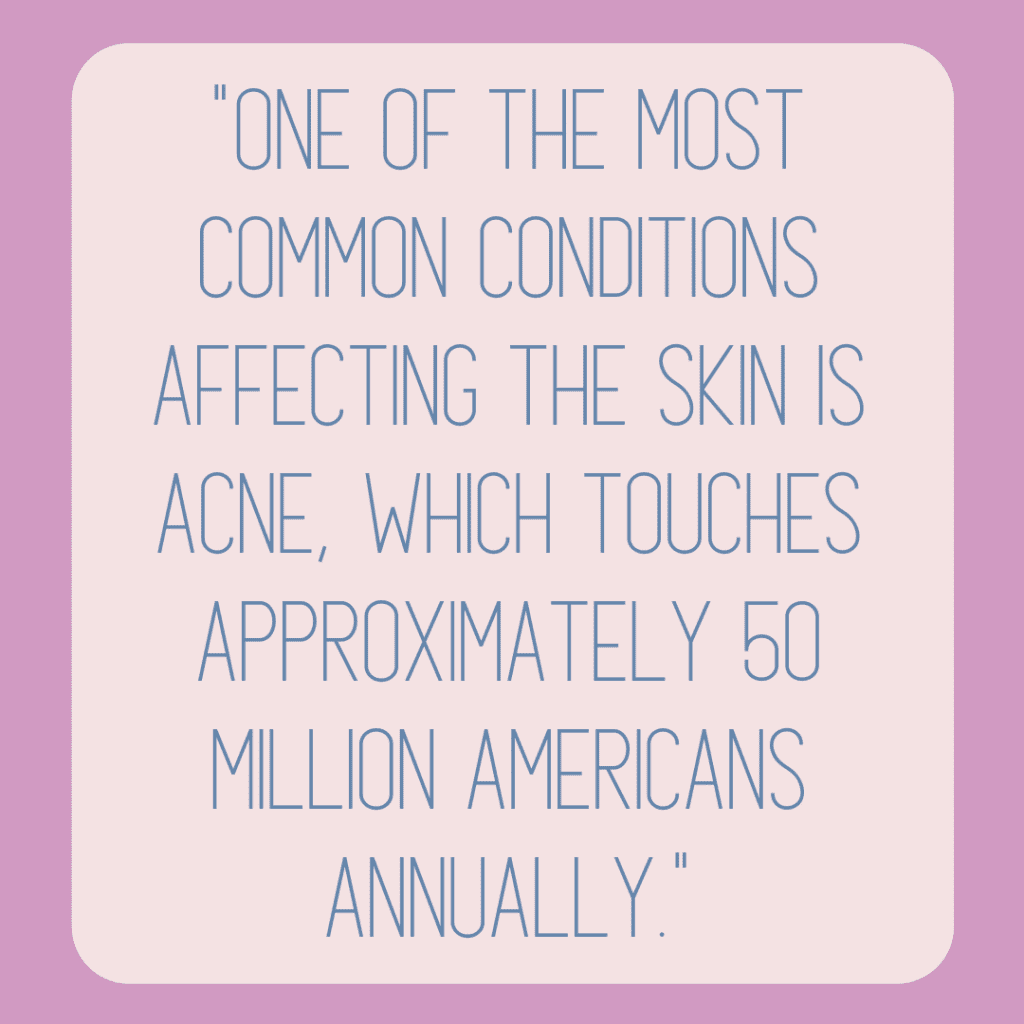
How To Take Care Of Your Skin
Taking care of your skin doesn’t require much of your time but needs proper care to ensure you’ll have your skin glowing for a long time. It is also imperative that you are using skincare products that exfoliate the skin and reduce bacteria formation. All products used on your skin should be free of pore clogging ingredients.
Cleanse Twice A Day
Again, we can’t stress this enough. Cleansing twice a day is necessary. You should wash off all the dirt, oil, and bacteria that have accumulated in your skin during the day. You may use a makeup remover but it is still essential to wash it off with a facial wash or soap. Even without wearing makeup, dead skin cells, and oil from your hair can build up from last night’s sleep which can clog up your pores.
Get Plenty Of Sleep
We’re all guilty of staying up late. Whether it’s for school homework due the next day or a late night in the company of friends, we’ve all stayed up past our bedtimes. And with social media and Netflix keeping us occupied, sleeping past 12 midnight has become the new norm. But such a habit can lead to a host of skin problems such as acne.
Our body repairs when we sleep, and so does our skin. If cut short, any mending gets disrupted. Poor sleeping habits result in more fine lines, wrinkles, uneven skin color, and even acne. It’s recommended to have six to eight hours of sleep per day for our body and skin to rejuvenate itself fully.
Get A Good Workout
Exercise has many benefits and not just for our body but also for our skin. It increases our blood flow which promotes circulation to our skin, thus, reducing any stress-related acne. However, it’s advisable to clean any equipment before using it, especially if it will come into contact with your skin. Avoid staying in your sweaty clothes for a long time and be sure to shower after exercising.
Use A Moisturizer
Moisturizers are not only an aesthetically inclined habit. Including moisturizers in your skin regimen will help you in recovering the lost moisture in your skin. This is most important after taking a shower as hot water, although relaxing, strips off all moisture and oils from our skin. Again, be sure this is not pore-clogging.
Apply A Sunscreen
The skin on our face, ears, neck, and chest are sensitive to environmental triggers, and are the most frequent areas likely to develop skin cancer. It’s important to add a layer of protection such as sunscreen daily on our skin. Even if you classify into the skin type that doesn’t burn easily, it’s still important to wear an acne-safe sunscreen. Even when staying indoors, it is vital to apply sunscreen especially when you’re sitting beside or in front of a window.
Exfoliate Gently
Exfoliating is beneficial to all skin types and not just because it removes dead skin cells. It helps reduce the buildup of dead skin cells which clogs up pores. While there are two known types of exfoliants, it’s advisable to speak with an Esthetician when choosing an exfoliant for your skin. Acne-prone skin should veer away from physical exfoliants as the scrubbing can make existing breakouts worse by irritating the skin.
Eat A Healthy Diet
While we have cleared that chocolate and greasy foods do not cause acne, a well-balanced and healthy diet will help you keep your acne at bay. While there are many claims on what diet is best to have, you can create a diet that specifically caters to your needs.
Plan a diet that reduces inflammation or lowers your blood sugar. While there are different studies suggesting different types of food to avoid and what to take, it’s best to talk to your doctor if making any major changes in your diet.
Understand Your Skin To Keep It Healthy
Now that you’re armed with knowledge, you can put them into practice and start planning for your overall well-being. That being said, this is not a makeover that can miraculously happen overnight the same way that acne doesn’t build up in your sleep. Having a better understanding of your skin will help you take care of what your skin needs inside and out.
Maintain your healthy skin, learn about The Best Skincare Routine According To Your Skin Type.
